Notice 2024-02: IRS Offers Guidance on (Some) SECURE 2.0 Questions
Proskauer's Employee Benefits & Executive Compensa
JANUARY 16, 2024
Although Notice 2024-02 offers helpful guidance for employers and plan administrators, it does not include hotly anticipated guidance on SECURE 2.0 requires that 401(k) plans established after December 28, 2022, implement automatic enrollment provisions for plan years starting after December 31, 2024. Merger of Pre-SECURE 2.0

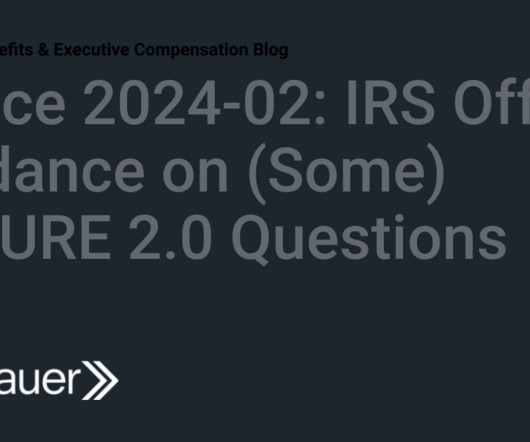


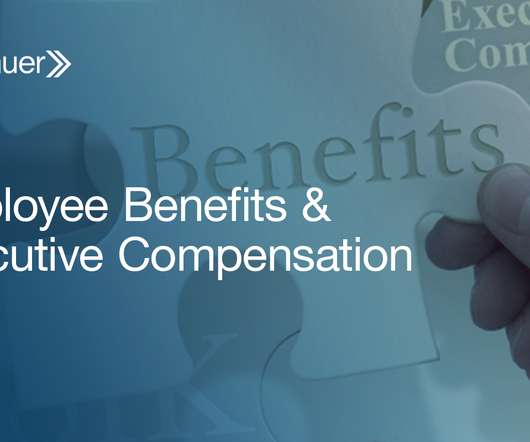

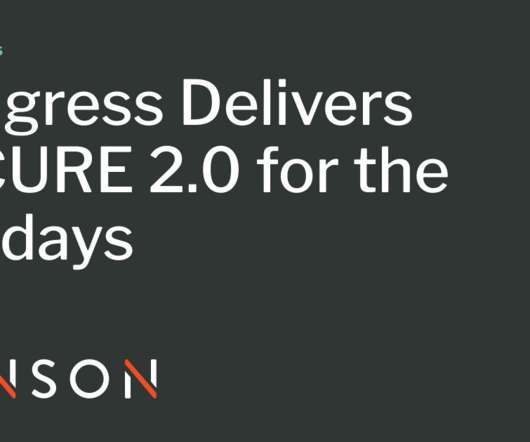
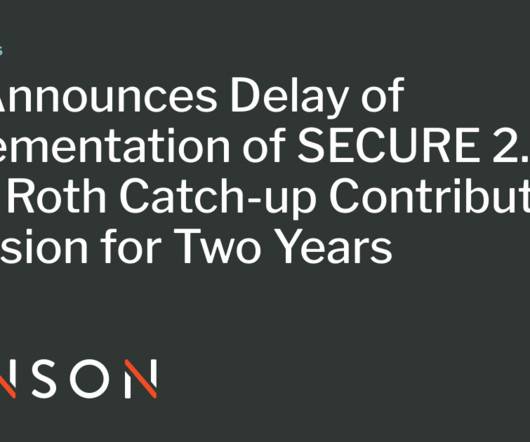
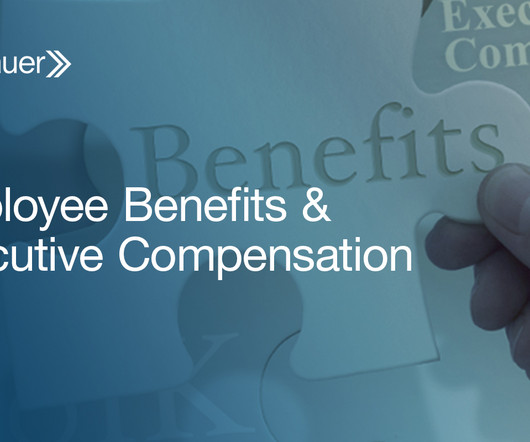






Let's personalize your content